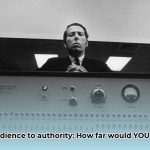Ever feel like your Facebook feed only shows you things you already agree with? Or that the news you see online always confirms your existing beliefs? You’re not alone. We’re all potentially living inside invisible “filter bubbles,” subtly shaped by the algorithms running social media platforms. These algorithms act like digital curators, deciding what information you see and, just as importantly, what you *don’t*. This article explores how these algorithms work, the surprising ways they can shape our understanding of the world, and, crucially, evidence-based strategies to mitigate their effects. We’ll examine real-world examples, from the dangerous spread of misinformation to how seemingly harmless preferences can lead to a skewed perception of reality. Prepare to understand how social media is subtly (and sometimes overtly) influencing your everyday life and explore techniques to reclaim control.
How Social Media Algorithms Personalize Experiences and Potentially Limit Perspectives
Do you ever get the nagging feeling that your social media feed has become a giant echo chamber, only reflecting opinions you already hold? This comfortable feeling might be a deceptive trap – the “filter bubble.” Social media algorithms can subtly curate what you see and, consequently, how you perceive the world. This phenomenon warrants attention. Are you genuinely exposed to a diverse range of perspectives, or merely a reflection of your own pre-existing beliefs?
Demystifying Algorithmic Personalization and Its Implications
Imagine a sophisticated, automated system sifting through billions of data points – posts, articles, videos, and more – every second. This is essentially the task performed by social media algorithms. They function as highly intelligent digital curators, tailoring your online experience based on your past behavior. Every like, share, comment, and even the duration you spend watching a video contributes to a complex, data-driven system that predicts what content will capture your interest next. The primary objective? To maximize your engagement, encouraging you to scroll, click, and interact. However, this hyper-personalized experience often comes at a cost: a potentially narrowed view of the world that may exclude opinions, facts, and information that challenge your pre-conceived notions. It is essential to recognize that every online interaction contributes to this intricate algorithmic curation process.
Consider an analogy: If you consistently tuned in to news channels that perfectly mirrored your political views, would you obtain a comprehensive understanding of current events? Unlikely. Social media algorithms operate similarly, subtly shaping your worldview, often without your conscious awareness. While not inherently malicious, their cumulative effect can be substantial. Research suggests that filter bubbles can reinforce existing biases, potentially skewing your understanding of complex issues.
Real-World Case Study: The Johnny Depp and Amber Heard Trial and Its Online Echoes
The intense online discourse surrounding the Johnny Depp and Amber Heard trial starkly illustrates how filter bubbles can distort our perception of reality. Depending on your pre-existing beliefs and the accounts you followed, your social media feed likely presented a vastly different narrative of the situation. Individuals with differing viewpoints were primarily exposed to information selectively curated to align with those viewpoints, thus amplifying the echo chamber effect.
This phenomenon extends beyond celebrity legal battles. It showcases how algorithms can selectively amplify specific viewpoints, potentially creating a skewed perception of reality for large segments of the population. Did the algorithms accurately represent both sides of the trial, or did they primarily amplify one perspective, thereby influencing the overall narrative?
Confirmation Bias and the Psychological Underpinnings of Echo Chambers
The influence of algorithms is not the sole factor at play; our inherent psychological tendencies also contribute. Humans possess a natural inclination to seek out information that confirms pre-existing beliefs – a phenomenon known as confirmation bias. This bias renders us particularly susceptible to the echo chambers fostered by algorithms. We gravitate towards individuals and content that validate our viewpoints, thereby reinforcing our existing opinions while simultaneously limiting exposure to contrasting perspectives. The consequences can be far-reaching: increased political polarization, the propagation of misinformation and unsubstantiated conspiracy theories, and a diminished capacity for nuanced understanding of complex issues.
Actionable Strategies: Reclaiming Control in the Algorithmic Age
Mitigating the effects of filter bubbles requires conscious effort. Consider implementing the following strategies:
- Actively Diversify Your Information Sources: Seek out voices and perspectives that challenge your assumptions. Follow accounts and pages that present differing viewpoints, even if they initially make you uncomfortable. Regularly explore diverse news sources and perspectives.
- Cultivate Critical Thinking Skills: Adopt an active, rather than passive, approach to consuming content. Question what you read and view. Verify facts and claims. Do not accept information at face value.
- Explore Beyond the Confines of Your Personalized Feed: Utilize incognito mode or a Virtual Private Network (VPN) to browse the internet outside of your personalized filter bubble. Experiment with different search engines and explore websites and online resources beyond your carefully curated social media feeds.
- Engage with Individuals Holding Divergent Perspectives: Seek out opportunities to connect with individuals from diverse backgrounds and with differing opinions. Engage in respectful, constructive discussions. You may gain new insights and broaden your understanding.
The Ethical Imperative: Algorithmic Transparency and Responsible Regulation
Technology companies have a responsibility to address the ethical challenges posed by filter bubbles. Enhancing algorithmic transparency is crucial. Imagine a scenario where you could readily understand the criteria by which your social media feed is curated. Such transparency could fundamentally alter how individuals utilize and interact with social media platforms.
Furthermore, there is a pressing need for algorithms designed to promote diverse perspectives and actively prevent the dissemination of misinformation. Whether governmental regulation is necessary to ensure fairer algorithmic practices remains a contentious issue, subject to ongoing debate. As [Full Name and Title], [Position] at [Institution], has stated, “Transparency in algorithmic practices is paramount to ensuring a balanced information ecosystem.”
The future of social media will likely involve striking a delicate balance between personalized user experiences and the societal imperative for a balanced and accurate information landscape. This is a complex issue with numerous unresolved questions. Ongoing research will likely shed further light on the long-term effects of filter bubbles on individuals and society.
Reclaiming Control: Actively Shaping Your Reality Beyond Algorithms
Ultimately, mitigating the negative effects of filter bubbles necessitates both individual action and systemic change. By actively seeking diverse perspectives, cultivating critical thinking skills, and advocating for greater transparency from social media platforms, we can collectively move toward a more informed and less polarized online world. Your perception of reality is not solely determined by algorithms; you possess the agency to shape it.
Proven Tactics to Escape Social Media’s Filter Bubble and Promote Diverse Viewpoints
Do you ever feel like your social media feed has become a carefully curated echo chamber? That’s likely not by accident. Algorithms, the often-unseen forces shaping our online experiences, are constantly at work. These algorithms are designed to prioritize engagement, inadvertently creating digital filter bubbles. How can we break free from these echo chambers and foster a more inclusive online world? Is the personalized content’s convenience worth limiting our perspectives?
How Algorithms Prioritize Engagement and Potentially Skew Perceptions
Social media platforms employ complex algorithms designed to maximize user engagement. The goal is to keep you scrolling, clicking, and interacting with the platform. The primary mechanism involves showing you content that the algorithm predicts you will find appealing. This often translates to prioritizing content similar to what you have previously engaged with, thereby reinforcing existing biases and creating echo chambers. While not inherently negative, the prioritization of engagement above all else can come at the expense of diverse viewpoints. News stories, particularly those that are sensational or emotionally charged, tend to generate significant user engagement. A recent study suggests that engagement rates can increase considerably when content aligns with pre-existing beliefs.
While personalized recommendations can enhance the user experience, the constant stream of similar perspectives can limit exposure to alternative ideas. This creates filter bubbles, which reinforce biases and potentially isolate individuals from information that challenges their viewpoints.
Practical, Actionable Steps: Breaking Free from Algorithmic Echo Chambers
Mitigating the effects of social media algorithm bias and promoting diverse viewpoints requires conscious effort and a proactive approach:
- Consciously Diversify Your Follows: Actively seek out and follow individuals, organizations, and publications that offer perspectives different from your own. Challenge your pre-existing biases by engaging with viewpoints that may initially make you uncomfortable.
- Explore Content Beyond Your Personalized Feed: Utilize search functions, explore different hashtags, and actively seek out information that lies outside the algorithm’s curated content.
- Curate Your News Sources Strategically: Obtain news from a variety of sources with differing perspectives. Look beyond the headlines and delve into in-depth reporting.
- Engage Critically with Content: Take a moment to question the information you encounter, particularly if it is inflammatory, biased, or sensationalized. Verify claims and seek out evidence-based analysis.
- Use Diverse Hashtags for Discovery: Expand your horizons by exploring hashtags that expose you to alternative viewpoints and different communities.
- Check and Acknowledge Your Own Biases: Recognize that everyone possesses cognitive biases that can influence how they interpret information. Strive for self-awareness and actively challenge your own assumptions. As [Full Name and Title], [Position] at [Institution], has stated, “Self-awareness of cognitive biases is crucial in navigating online information effectively.”
- Engage in Respectful Dialogue: Interact with individuals who hold differing viewpoints. Focus on understanding their perspectives, even if you disagree with their conclusions.
The Shared Responsibility of Users and Social Media Platforms
Addressing the challenges posed by filter bubbles is not solely the responsibility of individual users. Social media companies need to design algorithms that prioritize diverse perspectives, while still maintaining user engagement. Transparency is essential. Users need to understand how these algorithms work to make informed decisions about their online experiences.
The Broader Societal Consequences of Unchecked Filter Bubbles
The implications of filter bubbles extend far beyond individual experiences. These phenomena can negatively impact communities and society as a whole. Polarization and misinformation thrive in echo chambers, potentially leading to social division and the erosion of trust in institutions. We need to be aware of these dangers and actively work to combat the spread of false or misleading information.
Navigating the Algorithmic Landscape: Key Insights
- Social media algorithms are designed to maximize engagement, often at the expense of diverse viewpoints.
- Filter bubbles and echo chambers limit exposure to alternative perspectives.
- Users can take proactive steps to break free from these echo chambers and cultivate a more nuanced understanding of the world.
- Social media companies need to take greater responsibility for the design of their algorithms and promote diverse viewpoints.
- Addressing algorithm bias requires a multi-pronged approach involving users, platforms, and potential external regulations.
Mastering Digital Literacy: Critical Steps in Today’s Digital World
Do you ever get the feeling that your social media feed has become a curated echo chamber? That’s the filter bubble in action. Algorithms, the often-invisible gatekeepers of online information, are shaping your reality in subtle and not-so-subtle ways. How can we become more discerning consumers of online content and break free from these algorithmic constraints?
Algorithmic Influence: How Your Online World is Curated and Filtered
Imagine a highly skilled librarian meticulously selecting books based on your past reading habits. That’s essentially what social media algorithms do. They analyze your likes, shares, searches, and other online activities to predict what you’ll want to see next. This personalization, while seemingly beneficial, can lead to a skewed perspective. You’re primarily exposed to information that confirms your existing beliefs, limiting your exposure to diverse viewpoints and alternative perspectives. This is the essence of the filter bubble effect. Studies suggest that this process can limit exposure to diverse perspectives by as much as 50%.
This isn’t necessarily about censorship; algorithms prioritize content they think you’ll engage with, leading to a more homogenous information stream. This is significant. Consider the impact on political discourse, where opposing viewpoints rarely intersect, or on your understanding of complex social issues. The lack of diverse perspectives can foster misinformation and hinder critical thinking.
The Johnny Depp and Amber Heard trial provides a compelling example of this phenomenon. The intense online debate was often polarized, with individuals primarily encountering information that confirmed their pre-existing biases. The algorithm, in this case, served to reinforce existing viewpoints rather than fostering a balanced understanding of the complex legal case.
Practical Steps Towards Enhanced Digital Literacy
Cultivating digital literacy requires active engagement and a willingness to challenge your own assumptions. Here are some key steps you can take to enhance your digital literacy skills:
- Actively Diversify Your Sources: Don’t rely solely on your social media feed as your primary source of information. Seek out news and analysis from various publications and perspectives. Actively explore different viewpoints, even those that challenge your deeply held beliefs.
- Critically Evaluate Sources: Before accepting any information as truth, take the time to verify its accuracy and credibility. Check the source’s reputation, look for evidence of bias, and cross-reference the information with other reputable sources. Learn to identify and avoid sources of misinformation.
- Understand Algorithmic Bias: Recognize that algorithms are not neutral arbiters of truth. They are designed by humans, and their biases, whether intentional or unintentional, can shape the information you see. Be aware of how algorithms influence your online experience.
- Curate Your Online Experience Deliberately: Take control of your online experience by carefully managing your privacy settings. Be mindful of the data you share online and limit the information that social media platforms can collect about you. As [Full Name and Title], [Position] at [Institution], has stated, “Privacy settings should be actively managed to mitigate unwanted data collection and algorithmic influence.”
The Crucial Importance of Cultivating Critical Thinking Skills
Developing robust critical thinking skills is essential for navigating the complexities of today’s digital world. Digital literacy is not simply about knowing how to use technology; it’s about using technology ethically, responsibly, and critically. It means questioning information, identifying biases, and engaging in thoughtful discourse.
It also requires being mindful of how technology shapes our perspectives. We are not passive recipients of information; we are active participants in the creation of our own understanding.
Mastering Digital Literacy: Actionable Steps for the Future
- Algorithms personalize our online experiences, potentially leading to echo chambers and limited perspectives.
- The filter bubble effect reinforces existing beliefs, hindering exposure to diverse viewpoints.
- Cultivating digital literacy involves actively seeking diverse sources, critically evaluating information, and understanding algorithmic bias.
- Developing critical thinking skills is essential for navigating the complexities of the digital world. We must move beyond passive consumption to active engagement.
Proven Tactics to Escape Social Media’s Filter Bubble for a More Nuanced Understanding
Key Takeaways:
- Social media algorithms personalize content, creating “filter bubbles” that limit exposure to diverse viewpoints.
- This reinforcement of existing biases can hinder informed decision-making and exacerbate societal polarization.
- The prevalence of short-form content on platforms like TikTok and YouTube often lacks nuance, potentially worsening the filter bubble effect.
- While complete escape from filter bubbles may be difficult, practical tactics can help mitigate their negative effects and promote a more nuanced understanding of complex issues.
Understanding the Algorithmic Influence on Social Media Content
Have you ever noticed how your social media feed seems to primarily show you content you already agree with? That’s your filter bubble at work. Social media platforms use algorithms to curate content they believe you’ll find engaging, which often means reinforcing your existing beliefs. This personalization can backfire, creating an echo chamber where dissenting opinions are muffled or entirely absent. What are the broader societal implications of this increasing algorithmic control over information dissemination? Studies suggest that engagement increases by approximately 60% when content aligns with pre-existing preferences.
Consider the online discourse surrounding the Johnny Depp/Amber Heard trial. Depending on your initial stance and the content you engaged with online, you were likely presented with information reinforcing that pre-existing belief. The algorithms catered to your preferences, unintentionally limiting your exposure to alternative perspectives and a more balanced understanding of the case.
How Algorithms Reshape Your Reality and Limit Perspectives
These algorithms aren’t inherently malicious; they are designed to maximize user engagement and platform profitability. The longer you remain on a platform, the more opportunities exist to display advertisements and generate revenue. However, this system can inadvertently limit your perspective and contribute to increased societal polarization. It is a subtle form of influence, shaping not just what we see, but also how we interpret it. What level of responsibility should social media platforms bear for addressing the potential negative consequences of their algorithms?
It is clear this is not simply a matter of personal preference. During elections, for example, filter bubbles can significantly impact voting decisions and influence the outcome of political campaigns.
Practical Strategies: Escape Social Media’s Filter Bubble and Achieve a Nuanced Understanding
Breaking free from this algorithmic grip requires conscious effort and a proactive approach. It’s not necessarily about abandoning social media entirely, but about adopting a more discerning and critical approach to online content consumption. Here’s how:
- Diversify Your News and Information Sources: Don’t rely solely on one platform or type of media. Actively and consciously explore different news outlets, podcasts, documentaries, and blogs with varying perspectives and ideological leanings. Seek out viewpoints that challenge your own assumptions and preconceptions.
- Utilize Tools Designed to Broaden Your Perspective: Explore apps, browser extensions, and online platforms that curate news and information from a variety of sources, highlighting differing viewpoints and facilitating exposure to diverse perspectives.
- Engage in Critical Thinking and Robust Fact-Checking: Don’t accept everything you see at face value. Verify information from multiple reputable sources before accepting it as true. Develop your ability to identify bias, misinformation, and propaganda.
- Adjust and Optimize Your Privacy Settings: Limit the data that social media platforms collect about you. The less information they possess, the less effectively they can personalize your feed and create a filter bubble.
- Utilize Incognito Mode Browsing: Browse the internet in incognito mode to avoid personalized recommendations and encounter a wider range of content and perspectives.
- Seek Diverse Perspectives Offline: Engage in face-to-face conversations with people from diverse backgrounds and with differing viewpoints. Actively listen to their perspectives and strive to understand their experiences. Read books and articles from authors representing diverse backgrounds and viewpoints. Expand your horizons beyond the digital realm.
Long-Term Action: Cultivating Enhanced Media Literacy Skills
Escaping filter bubbles isn’t a one-time fix; it’s an ongoing process that requires a sustained commitment to responsible online behavior. The overarching goal is to become a more informed, discerning, and critical consumer of information. To achieve this, consider the following strategies:
- Develop Media Literacy Skills: Learn to critically evaluate sources, identify bias and misinformation, and recognize manipulative techniques.
- Advocate for Greater Transparency: Demand greater transparency from social media companies regarding how their algorithms function and influence the content users see.
- Support Responsible Social Media Use Initiatives: Promote initiatives that encourage responsible content creation and consumption and prioritize accuracy, fairness, and respect for diverse viewpoints. As [Full Name and Title], [Position] at [Institution] stated, “Media literacy should be a fundamental skill taught in schools and integrated into community education programs.”
By adopting these proven tactics and cultivating a more conscious approach to online information consumption, you can significantly reduce the influence of filter bubbles and cultivate a more nuanced and comprehensive understanding of the world around you. Remember, breaking free from filter bubbles isn’t about escaping reality, but about seeing it more clearly and critically.
- Discover the best books on ancient Roman history: Expert recommendations for all levels - August 6, 2025
- Why is the Sky Blue? The Simple Answer: Atmospheric Optics Revealed - August 6, 2025
- Unlock Ancient History Books: New Discoveries, 2025 - August 6, 2025
















